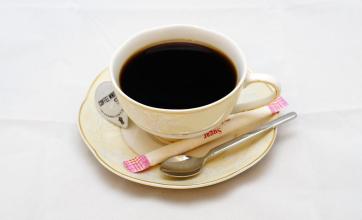Rich Flavor Coffee beans from Kimmel Manor, Rwanda, Grinding degree and Baking degree treatment method

Rwanda water washing method
The market for Rwandan coffee:
Rwanda coffee is absolutely high quality in the form of washed Arabica beans. As far as Africa is concerned, its coffee industry is remarkable because the country thrives mainly by producing the best possible coffee beans. Coffee from Rwanda is becoming more and more popular in the international market.
The mission of the Rwanda Coffee Association is to manage and supervise the operation of the coffee industry in Rwanda from production to sale. The recently revised mission focuses on policy formulation and implementation, with more emphasis on the need to improve the professionalism of the coffee industry and to increase marketing efforts. Since the establishment of the Rwanda Coffee Association, it has promoted the Rwandan coffee culture and promoted the influence of Rwandan coffee.
But in any case, the soft and full-bodied taste of the country's coffee is great.
Rwanda is a small African country, and the local people are relatively poor, but it produces straight and very good coffee. Unlike its neighbors Kenya and Ethiopia, Rwanda's coffee is mainly round bourbon. The taste is not as prominent as Ethiopia and Kenya, but the evenness is excellent.
Rwanda's economy is dominated by agriculture. The population engaged in agriculture and animal husbandry accounts for 92% of the country's population. The main cash crops are coffee, tea and cotton. Because it is an agricultural and animal husbandry country, coupled with the loss of many young workers caused by the genocide in 1994, it is a huge blow to a country that is not already rich, and Rwanda is still a backward country. After the civil war, Rwanda has intensified its development in the cultivation and trade of coffee. In recent years, the Rwandan government has also taken positive measures to set up coffee production cooperatives in various places to give technical guidance and financial support to farmers. It is expected that the domestic economic development can be promoted to a certain extent through the coffee industry. Because of the excellent performance of Rwandan coffee in recent years, it is becoming more and more popular in the international market.
Rwanda has been growing coffee since colonial times. Although the crops are mainly coffee, the quality of coffee produced in Rwanda is not outstanding, and its status in the coffee world is low, and few people pay attention to it. Most of the coffee varieties grown in Rwanda are bourbon. Rwanda, known as the "country of a thousand hills", has a high-altitude mountain environment, fertile volcanic soil and abundant precipitation, and has a climate conducive to the growth of coffee trees. The advantages of varieties and excellent natural conditions should have produced high-quality coffee, but why the quality of its coffee performance is not satisfactory? The reason lies in the later stage of processing. Improper handling will reduce the quality of coffee and sacrifice a lot of good flavor in vain. Harvesting, planting, treatment, grading, transportation and other links will directly affect the quality of raw coffee beans, in which the lack of control in a certain link will become a stumbling block to good coffee.
The coffee fruit needs to be transported to the processing plant as soon as possible after picking, but due to the lack of domestic facilities, it is unable to deal with the fruit at the first time. The fruits are piled up after being picked, which will continue to develop and accelerate mildew and decay due to lack of ventilation. Rotten fruits will affect the quality of coffee and show defective flavor.
In recent years, Rwanda has made great progress in the production and processing of coffee. First of all, coffee fruits are picked manually; coffee production cooperatives are set up all over the country to provide technical guidance to coffee farmers; coffee farmers send them to coffee processing stations for cleaning and screening as soon as possible after picking, and select mature and high-quality coffee fruits for processing.
Most of the coffee in Rwanda is washed. The water washing method will first wash and flotation the ripe coffee fruit, then remove the exocarp, pulp and part of the pectin layer, then send the coffee into the fermentation tank, remove the remaining pectin layer and then send it to the drying ground for drying treatment, so that the water content reaches about 13%. The coffee in the picture above is dried on an African shed to avoid the smell of dirt. It is more ventilated and mildew can be avoided. In the process of drying, coffee farmers will also turn the beans regularly to make the drying more even. at the same time, they will pick out the beans of poor quality and discard them.
Rwanda is located in the south of the equator in east-central Africa, a landlocked country. It is bordered by Tanzania to the east, Burundi to the south, Zaire to the west and northwest, and Uganda to the north, with a land area of 26338 square kilometers, ranking 149th among all countries in the world and close to Burundi, Macedonia, Haiti and Albania. Rwanda is located in east-central Africa, bordered by the Democratic Republic of the Congo to the west, Uganda to the north, Tanzania to the east, and Burundi to the south. The country is landlocked within several latitudes south of the equator. Located near the center of the country, the capital Kigali has a temperate and tropical plateau climate in Rwanda. Because of its high altitude, its temperature is lower than that of a typical equatorial country. The daily temperature in Kigali, located in the middle of the country, is generally between 12 and 27 °C, with small fluctuations throughout the year. There is also a large temperature difference in some parts of the country, with temperatures lower in the mountainous west and north than in the eastern low-lying areas. Rwanda has two rainy seasons each year, each from February to June and the second from September to October, while there are also two dry seasons, with a longer duration from June to September, often with no rainfall at all. the other lasts from December to February, which is relatively less serious than the previous one. Rainfall varies from region to region, with more rainfall in the west and northwest than in the east and southeast. However, the rainy season pattern has changed as a result of climate change. According to a report by Strategic foresight, the number of overcast and rainy days each year is sometimes smaller, but the rainfall is greater in a short period of time. In other cases, there will be frequent torrential downpours in a single day, more than in the past month combined. In addition, there are cases where the rainy season comes late or ends early.
Since the 1920s, Arabica coffee grown in Rwanda has been famous for its unique fruit sweetness and rich grass aroma. In recent years, the Rwandan government has taken positive measures to vigorously promote coffee production, set up coffee production cooperatives in various places, and give technical guidance and financial support to farmers, so that coffee production has made considerable progress.
There are about 33000 hectares of coffee plantations in Rwanda, with 500000 people engaged in the coffee industry. With the good natural conditions of high altitude and fertile volcanic soil, the country's fertile soil and suitable climate contribute to plant growth, and coffee trees seem to be driven or forced to grow upward, or because they grow too fast to produce the best coffee beans. The beautiful country of thousands of hills Rwanda has a long and rich culture for growing highland coffee, mainly high-quality Arabica coffee. Rwanda is the only country in the world that can fully enjoy the harmony between soil, altitude and climate. In this unique growing environment, high-quality coffee from Rwanda has a distinctive taste and aroma. Bourbon coffee grown in Rwanda is one of the original varieties of Arabica coffee.
Important Notice :
前街咖啡 FrontStreet Coffee has moved to new addredd:
FrontStreet Coffee Address: 315,Donghua East Road,GuangZhou
Tel:020 38364473
- Prev

The long aftertaste of Rwanda's Chimaier estate fine coffee beans variety planting market price profile
PEARL brought coffee specialists to Rwanda, where it was responsible for maintaining contact with the seller, Community Coffee of Louisiana, USA, and sending samples to Louisiana. In June 2002, representatives of Public Coffee visited Malabar. At that time, the current President of Rwanda, Paul Kagame, spoke on behalf of the government about the importance of this plan.
- Next

Long aftertaste of boutique coffee beans in Kimmel Manor, Rwanda, geographical location, climate, altitude
Starbucks, the world's largest coffee and beverage retailer, has also partnered with the Rwandan government to import Rwanda coffee, just as a brown pigeon flies from its cup against the line of the Cup of Hope. Indeed, coffee places the hopes of the people of Rwanda. They hope to increase coffee exports to boost the national economy.
Related
- Does Rose Summer choose Blue, Green or Red? Detailed explanation of Rose Summer Coffee plots and Classification in Panamanian Jade Manor
- What is the difference between the origin, producing area, processing plant, cooperative and manor of coffee beans?
- How fine does the espresso powder fit? how to grind the espresso?
- Sca coffee roasting degree color card coffee roasting degree 8 roasting color values what do you mean?
- The practice of lattes: how to make lattes at home
- Introduction to Indonesian Fine Coffee beans-- Java Coffee producing area of Indonesian Arabica Coffee
- How much will the flavor of light and medium roasted rose summer be expressed? What baking level is rose summer suitable for?
- Introduction to the characteristics of washing, sun-drying or wet-planing coffee commonly used in Mantenin, Indonesia
- Price characteristics of Arabica Coffee Bean Starbucks introduction to Manning Coffee Bean Taste producing area Variety Manor
- What is the authentic Yega flavor? What are the flavor characteristics of the really excellent Yejasuffi coffee beans?

